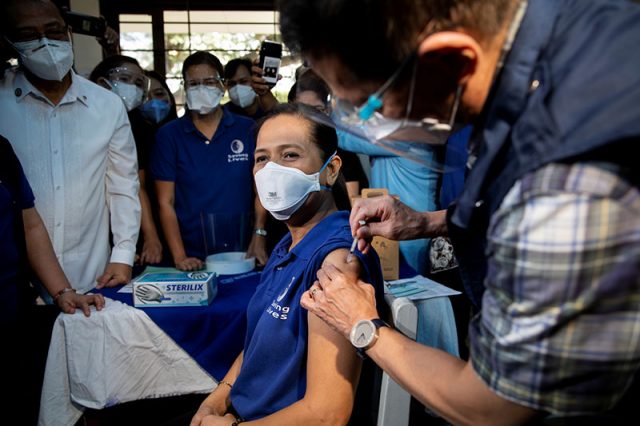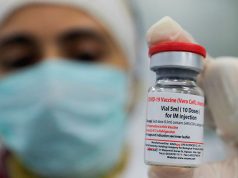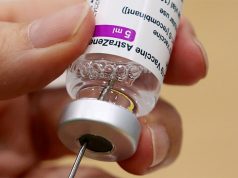
Concerned Filipinos opposed the proposed policy of Metro Manila mayors to restrict the movements of unvaccinated individuals. They suggested alternatives to this proposed directive instead.
The Metropolitan Manila Development Authority announced on Monday that city officials have agreed on this move “in principle” amid the rising COVID-19 cases.
In a briefing, MMDA Chairman Benhur Abalos likened the implementation of it as the enhanced community quarantine (ECQ), the toughest of the lockdowns, but only for those who have not yet received their COVID-19 shots.
“Para kang nag-ECQ only for the unvaccinated…Ito ay temporary lamang, ito ay habang nasa Alert Level 3 tayo para maproteksyunan din ang walang bakuna,” Abalos was quoted by reports as saying.
In their proposal, the city officials will be enacting local ordinances that will prohibit unvaccinated and partially vaccinated persons from entry to al fresco dining, indoor dining, hotels, malls and other establishments.
Abalos also stated that the MMDA has yet to finalize its own list of restrictions despite the raised alert level supposedly being in place on the same day.
Metro Manila was placed under Alert Level 3 from January 3 to 15.
In the latest case bulletin, the Department of Health recorded 4,084 additional COVID-19 infections or a 20.7% positivity rate, thus bringing the total to 2,855,819.
There are also 497 new recoveries, bringing the total to 2,779,241.
Moreover, there are 16 new deaths, which brings the total to 51,586.
‘Virus carriers’
The proposal of city officials was met with mixed reactions online. While some welcomed the restrictions on unvaxxed individuals, others expressed opposition against it.
Some users suggested properly educating the unvaccinated to receive their COVID-19 shots or making vaccination accessible to more people.
“I- encourage natin na magpabakuna ‘yung mga unvaccinated. Lalabas ang mga vaccinated, possible pa rin na ma-expose sila sa virus, at ma-infect ang mga unvaccinated,” one Twitter user said.
“Instead of asking / forcing the unvaccinated to stay home, why not go to their homes and vaccinate them? And tell the vaccinated to stop eating out. What’s two months of no social eating if it means smashing the surge?” another Twitter user added.
Others also pointed out that being vaccinated does not mean immunity from COVID-19.
“Even fully vaccinated people can still be virus carriers and can infect other vaccinated people they mingle with. Be stricter in implementing basic health protocols down to the barangay/sitio levels,” one Facebook user said.
“This is stupidity! Vaccinated individuals can be a virus carrier too. So what’s the point?” another online user said.
There were also concerns about the proliferation of fake COVID-19 vaccination cards.
Vaccination cards are used as entry passes in most business establishments and localities.
“But there are so many who have fake vaccination cards,” one user said.
Vaccination is supposed to be a personal decision and is protected by law.
RELATED: ‘No vax, no work’ is illegal, DOH stresses as fake news causes panic
The use of vaccine cards as a requirement is also prohibited by section 12 of Republic Act 11525 or COVID-19 Vaccination Program Act of 2021, which states that:
“Vaccine cards shall not be considered as an additional mandatory requirement for educational, employment and other similar government transaction purposes.”
In the same provision, it was also stated that being inoculated does not equate to immunity.
“Individuals vaccinated against COVID-19 as indicated in the vaccine card shall not be considered immune from COVID-19 unless otherwise declared by the DOH based on reliable scientific evidence and consensus,” the law reads.









